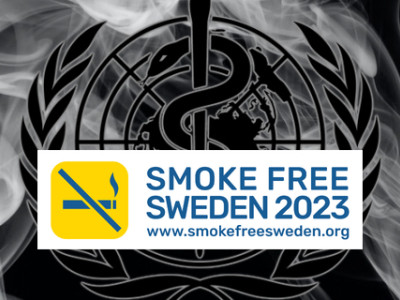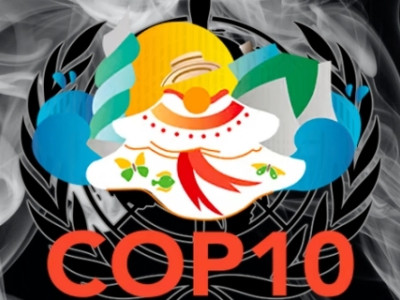Vape products and vapers will have to deal with the proposed restrictions to limit use in public places, a ban on vaping at home in private if anybody is employed there, crushing harm reduction advertising and limiting any communication about the benefits vaping offers over smoking. Crucially, vape products will also be included in a ban on distance selling over the Internet and there is an implication all packaging will have to be plain.
The South African government has taken its direction by following the World Health Organisation (WHO) Framework Convention on Tobacco Control (FCTC) articles and guidelines to the letter, although it claims it is carrying out a more even-handed approach to tobacco harm reduction.
Zodwa Velleman, chief executive of Vapour Product Association South Africa (VPASA), said: “The bill threatens to deprive millions of citizens of a safer alternative to smoking. E-cigarettes are 95% less harmful and the current vaping market is worth more than R1billion.”
The organisation has pointed out that vaping has offered more than just a great route out of smoking addiction. As the market has booomed, the overall price has dropped and they believe offers a 7% reduction in cost over a 12-month period.
Also, according to VPASA, if left unimpeded, the vaping market would generate over 10,000 new jobs over the next ten years. “Vaping products must be regulated separately. International evidence shows that the countries that have embraced them, like the UK and the US, have seen their smoking rates plummet in recent years.”
Problems for the government begin with its own impact assessment. By its own admission, the authorities don’t understand vaping or the benefits of tobacco harm reduction. Plus, the government accepts its new law “will significantly reduce the growth in the [vape/harm reduction] market,” and, in turn, “this in turn will have detrimental consequences for the manufacturers, importers, wholesalers and retailers of these products.”
Velleman continued: “Tobacco companies are powerful. They can no longer advertise the lifestyle and the red cigarette boxes, so now they are shifting tactics. I don’t believe that people have a choice as they market it; about 70% of smokers wish to stop smoking, 35% go on to try to stop every year but only 3% successfully quit. I don’t believe that the addictiveness of nicotine can go away so easily.”
So far, vaping has created more than 4,000 South African jobs. In addition to the threat to future market growth and restricting smokers to duff NRT products, these jobs will be placed at risk.
Fidel Hadebe, also from VPASA, added: “We believe that the Bill as it stands is over-reaching, short of outlawing vaping products. Just to cite one example, the Bill as it stands makes it illegal for traders in vaping products to brand their trading spaces – which they pay rent for by the way.”
“Secondly," continued Hadebe, "the Bill seeks to make it unlawful to use e-commerce to process purchases and as you know, e-commerce is the way in which business is being done these days. These are just some of the business concerns we have and we will be robustly engaging the Department on these issues.”
Canback Consulting has got involved and produced The SA Vaping Market Report. From it, Hadebe adds a warning: “In addition, we have further evaluated the impact of a significant price increase of vaping through a tax-based scenario, similar to markets where EVPs are taxed equivalent to tobacco-based products.” It doesn’t look pretty, with vapers being priced out of harm reduction and returning to tobacco products.
The proposals stand to crush an annual 10% growth in the vaping market, a growth that Canback associates with declining smoking rates.
Never one to let governments get away with unchecked acts of stupidity, Clive Bates has written comments to the draft proposal.
In conjunction with Ray Niaura and David Sweanor, the trio write: “The draft legislation is almost completely disproportionate in its approach to tobacco harm reduction technologies. It mostly treats reduced-risk products as though they are the same as smoking products. The alternative philosophy, which we advocate, is to adopt ‘risk proportionate regulation’ that encourages (or rather, does not inhibit) smokers from using vaping, novel nicotine products, heated tobacco or smokeless tobacco products to quit smoking.”
The full 20-page submission can be read here, but a summary of the main points is detailed on Bates’ blog:
- The draft Bill does not sufficiently differentiate between nicotine products of very widely differing risk to health. It does not embrace the definition of ‘tobacco control’ used in the WHO FCTC, which includes ‘harm reduction’. As these products are rising in importance, this is a significant weakness in a major Bill that should set direction for several years.
- We are concerned the draft Bill will cause harm to health by obstructing smokers switching from high-risk combustible products (cigarettes) to low-risk non-combustible products (including vaping, heated products and smokeless tobacco). These switches should be encouraged.
- There is a substantial body of evidence that electronic nicotine delivery systems (ENDS) and other low-risk products are helping smokers to quit. This could help countries meet targets for reducing non-communicable diseases more rapidly and at minimal cost to government.
- Many countries are now revising their approach to new technologies that compete with cigarettes, most recently New Zealand and Canada. Countries like the UK have adopted ‘risk proportionate’, which is championed by the Royal College of Physicians and Public Health England. It would be disappointing if South Africa adopted a backward-looking tobacco control Bill just as other countries were modernising their approach.
- We are concerned that the draft Bill would protect the cigarette trade and favour the incumbent tobacco industry. The draft Bill would erect barriers to entry to innovative low-risk products and by doing so make access to lower risk products more difficult, less appealing and more expensive.
- The Bill presents an opportunity for South Africa to lead in tobacco policy, to influence low and middle income countries, especially in Africa, and to lead thinking in WHO. But this will require a different approach to that used in the current draft Bill. We have made a range of suggestions for text amendment in Section 2, but the most important step is to redefine the strategic policy intent to exploit the opportunities of tobacco harm reduction rather than treat them as a threat.
For the sake of current smokers in South Africa and those working industriously in its vape industry, we hope that legislators listen to reason and temper its proposed law with some common sense.
Vaping offers smokers a quick route out of cigarette addiction at little to no cost to government, it’s a huge win-win for everybody – apart from individuals with a vested interest in keeping the old war against Big Tobacco going.
Dave Cross
Journalist at POTVDave is a freelance writer; with articles on music, motorbikes, football, pop-science, vaping and tobacco harm reduction in Sounds, Melody Maker, UBG, AWoL, Bike, When Saturday Comes, Vape News Magazine, and syndicated across the Johnston Press group. He was published in an anthology of “Greatest Football Writing”, but still believes this was a mistake. Dave contributes sketches to comedy shows and used to co-host a radio sketch show. He’s worked with numerous vape companies to develop content for their websites.
Join the discussion
Harm Reduction For The Rich
The United Kingdom risks becoming a harm reduction country only for the wealthy, according to Michael Landl of the World Vapers’ Alliance
CAPHRA Highlights Tobacco Control Flaws
The Coalition of Asia Pacific Tobacco Harm Reduction Advocates highlights the flaws in tobacco control which has led to the rise of black market in Australia
A Missed Opportunity at COP10
The Smoke Free Sweden movement says that COP10 was a missed opportunity to save millions of lives
COP10: Promote Tobacco Harm Reduction
Experts with Smoke Free Sweden are emphasising the urgent need for a Tobacco Harm Reduction approach at COP10












